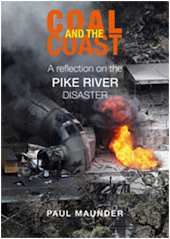.
The announcement yesterday of Ministerial and Overseas Investment Office approval of the sale of the bankrupt Crafar Farms to Chinese buyers is no surprise to the Campaign Against Foreign Control of Aotearoa (CAFCA). The only surprise is that it took them so long to rubber stamp it. This was all supposed to be a done deal back in 2010 when it was supposed to be sold to the first lot of would be Chinese buyers. That all turned to custard because of an even greater of lack of good character than usual of the company’s principals, who are now facing serious criminal charges in Hong Kong (but nothing in New Zealand, which tells you a lot about the diligence of NZ’s “regulatory” authorities).
.
 |
| Sale a “political hot potato” prior to election |
.
The lily is being gilded by the announcement that Landcorp will manage it on behalf of the Chinese buyers. Everyone knows that there is the world of difference between being the owner and the property manager. Ownership is power; owners make the decisions (including onselling it); owners get the profits. The lily is being further gilded by a number of conditions being attached to it (Labour set the precedent for this in regard to the equally controversial Shania Twain land purchases when it was in office). Conditions such as the buyers remaining of good character (this could be renamed the May Wang clause) and paying millions of dollars to various worthy causes. These should be taken with a well deserved grain of salt. Why? Two words – Kim Dotcom.
 |
Prime Minister “disingenuous”
|
The Prime Minister keeps issuing soothing noises about foreign land purchases only totaling around 1% of the total land area. He is being disingenuous. What is important is what percentage of the total area of productive land is foreign-owned. These statistics are no longer issued by the Overseas Investment Office but when they were, last decade, CAFCA calculated the figure at 7% - and it was never officially denied or disputed. We’ve seen no evidence of that figure having gone down, quite the opposite. Plus the PM is stressing quantity when, once again, the key factor is the quality of the land being flogged off overseas. Foreign buyers are cherry picking, not buying the rubbish (that’s left for the locals).
.
CAFCA stresses that the race of the buyers is irrelevant. Flogging the Crafar Farms overseas is reprehensible regardless of whether the foreign buyers are Chinese, Americans, British or Australians. Despite attempts to reorient the economy into other directions (finance companies, anyone?), New Zealand still remains an agricultural country. And we’re very good at it, which is why foreign buyers want to snap it up. CAFCA doesn’t carry any flag for Michael Fay’s rival bid. All we need say about him is that patriotism is the last refuge of the scoundrel. The opportunity to have the Crafar Farms genuinely stay in local hands was lost when the receivers rejected Landcorp’s bid to buy them (which gets the management contract as a consolation prize). The Prime Minister said in 2010, when controversy was raging about the original Chinese proposal to buy these farms; that he didn't want to see New Zealanders become tenants in our own land. A commendable sentiment, one with which CAFCA completely agrees. But yesterday’s decision by his Government ensures that is exactly what is happening.
.
.png) |














